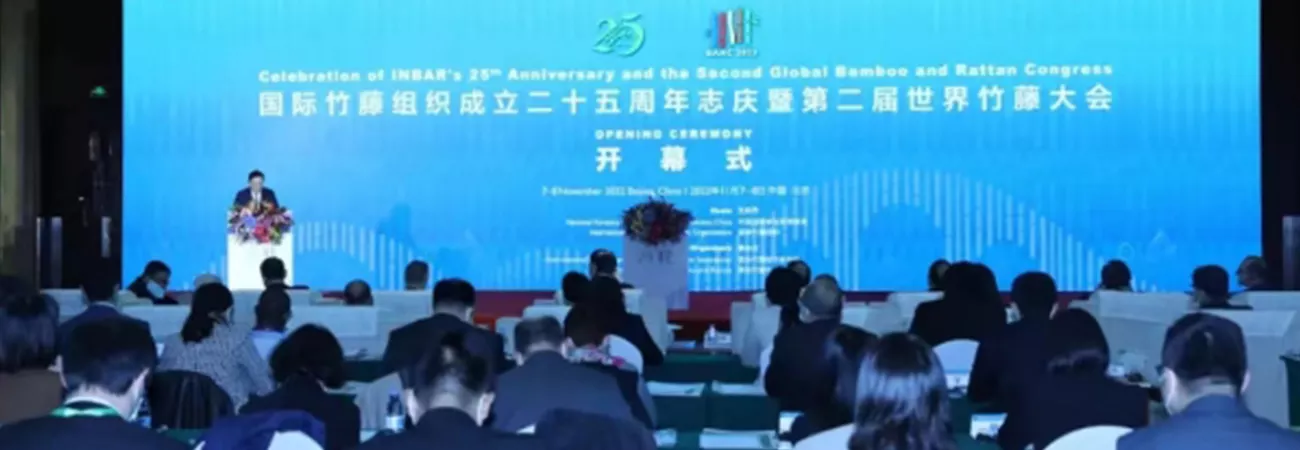i NEWS PAK-CHINA
An initiative to replace the use of plastic with bamboo was launched by the Chinese government in collaboration with the International Bamboo and Rattan Organisation (INBAR) at the opening ceremony of the Second Bamboo and Rattan Congress (BARC 2022) and celebration of INBAR’s 25th anniversary held here both online and offline, Gwadar Pro it reported on Thursday. Incorporated under the framework of the Global Development Initiative (GDI), the Bamboo as a Substitute for Plastic Initiative is designed to radically scale up the use of bamboo as a renewable resource to reduce plastic pollution and address climate change and jumpstart international efforts to meet the 2030 Agenda for Sustainable Development. As per INBAR, bamboo plays a huge role in cutting plastic pollution and is on track to replace plastic in the field of commodity, engineering and medical treatment.
The initiative advises countries to provide supportive policies and promote the use of bamboo over plastic. Efforts should also be made, it states, to incentivise scientific research and innovative uses of bamboo so as to promote new technologies and new products. The initiative also proposes to increase public awareness of bamboo as a sustainable substitute for plastic through national and international forums, exhibitions and other public events. Plastic pollution has posed a grave threat to the earth and human beings. As per a 2021 UNEP report, "approximately 7 billion of the 9.2 billion tonnes of plastic produced from 1950-2017 became plastic waste, ending up in landfills or dumped," representing a global recycling rate of less than 10%. Researchers at INBAR have also found that tiny plastic particles arising from plastic waste have spilled over into the food chain and that such microplastics can also be found in plants and fetuses of the Himalayas and the Mariana Trench.
In Pakistan, 250 million tons of garbage in Pakistan primarily consists of plastic bags, pet bottles and food scraps, and 65% of waste that ends up on beaches along the coastal areas includes water bottles, caps, plastic bags, and packaging, according to WWF-Pakistan. As part of its measures to eliminate poverty and achieve sustainable development using bamboo, Pakistan joined INBAR as its 48th member state in 2021. The cooperation on bamboo between China and Pakistan is also highlighted in a 2018 memorandum of understanding (MoU) signed between the National Forestry and Grassland Administration of China and Pakistan’s Ministry of Climate Change to increase cooperation on forestry, wildlife and biodiversity. Hosted by the National Forestry and Grassland Administration of China and INBAR, BARC 2022 is themed on “Bamboo and rattan – nature-based solutions for sustainable development.”
Credit: Independent News Pakistan-INP









